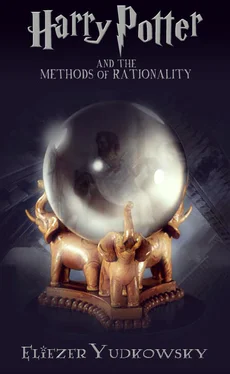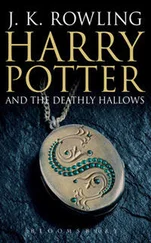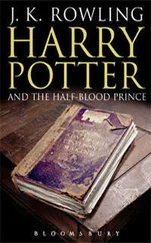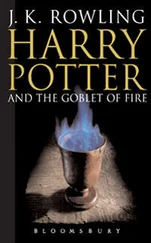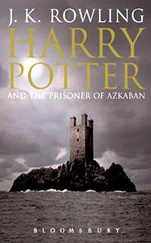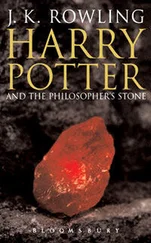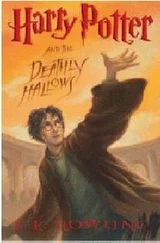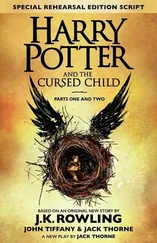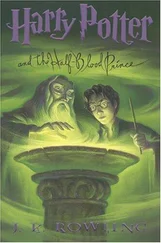You are not meant to question that sort of thing (they know in some unspoken way). If the most terrible Dark Lord in history, confronts an innocent baby - why, how could he not be vanquished? The rhythm of the play demands it. You are supposed to applaud, not stand up from your seat in the audience and say 'Why?' It is just the story's conceit, that in the end the Dark Lord is brought down by a little child; and if you are going to question that, you might as well not attend the play in the first place.
It does not occur to them to second-guess the application of such reasoning to the events they have seen with their own eyes in the Most Ancient Hall. Indeed, they are not consciously aware that they are using story-reasoning on real life. As for scrutinizing the Boy-Who-Lived with the same careful logic they would use on an political alliance or a business arrangement - what brain would associate to that, when a part of the legendary magisterium is at hand?
But there are a very few, seated on those wooden benches, who do not think like this.
There are a certain few of the Wizengamot who have read through half-disintegrated scrolls and listened to tales of things that happened to someone's brother's cousin, not for entertainment, but as part of a quest for power and truth. They have already marked the Night of Godric's Hollow, as reported by Albus Dumbledore, as an anomalous and potentially important event. They have wondered why it happened, if it did happen; or if not, why Dumbledore is lying.
And when an eleven-year-old boy rises up and says "Lucius Malfoy" in that cold adult voice, and goes on to speak words one simply would not expect to hear from a first-year in Hogwarts, they do not allow the fact to slip into the lawless blurs of legends and the premises of plays.
They mark it as a clue.
They add it to the list.
This list is beginning to look somewhat alarming.
It doesn't particularly help when the boy yells "BOO!" at a Dementor and the decaying corpse presses itself flat against the opposite wall and its horrible ear-hurting voice rasps, " Make him go away. "
Chapter 82: Taboo Tradeoffs, Final
Phoenix travel was a sensation entirely unlike Apparition or portkeys. You caught on fire - you definitely felt yourself catching on fire, even though there was no pain - and instead of burning to ashes, the fire burned all the way through you and you became fire, and then you went out in one place and blazed up in another. It didn't sicken the stomach like portkeys or Apparition, but it was a rather unnerving experience nonetheless. If the underlying truth of phoenix travel really was becoming a specific instantiation of a more general Fire, then that seemed to hint you could potentially burn anywhere - even in the distant past, or in another universe, or in two places at once. You might go out in one place and blaze up in a hundred others, and the you who arrived at Hogwarts would never know the difference. Though Harry had read what he could about phoenixes, trying to figure out how to get one of his own, and there'd been no hint of anything remotely like that capability.
Harry caught fire and went out and blazed up somewhere else; and just like that he, and the Headmaster, and the unconscious form of Hermione Granger held in the Headmaster's arms, were occupying another place; with Fawkes above them all. A calm, warm room of bright stone columns, skylit on all four sides, populated by white beds in long rows, four of which had silencing veils drawn around them, and the rest empty.
In one corner of Harry's vision, a surprised-looking Madam Pomfrey was turning toward them. Dumbledore seemed to pay the senior healer no heed, as he carefully laid down Hermione on an unoccupied white bed.
From a distant corner there was a flash of green, and from out of a fireplace strode Professor McGonagall, brushing herself off slightly from the Floo ashes.
The old wizard turned from the bed and reached one of his arms around Harry again; and then the Boy-Who-Lived and his wizard vanished in another burst of fire.
When Harry had fully lit up again he was standing in the Headmaster's office, amid the noises of a dozen dozen inexplicable gidgets.
The young boy took a step away from the old wizard and then turned on him, emerald and sapphire eyes meeting.
The two of them did not speak for a time, looking at each other; as though all they had to speak could be said only by stares, and not said in any other way.
In time the boy enunciated words slowly and precisely.
"I cannot believe that a phoenix is still upon your shoulder."
"The phoenix chooses but once," said the old wizard. "They might perhaps leave a master who chooses evil over good; they will not leave a master forced to choose between one good and another. Phoenixes are not arrogant. They know the limits of their own wisdom." Stern indeed, that ancient gaze. "Unlike you, Harry."
"Choose between one good and another," Harry echoed flatly. "Like Hermione Granger's life, versus a hundred thousand Galleons." The rage and indignation Harry wanted to put into his voice wasn't quite there, for some reason, maybe because -
"You are hardly in a position to speak to me of that, Harry Potter." The Headmaster's voice was deceptively soft. "Or what was that look of reluctance that I saw upon your face, there in the Most Ancient Hall?"
The sense of inward hollowness grew worse. "I was looking for other alternatives," Harry bit out. "Some way to save her that didn't lose the money."
Wow, said Ravenclaw. You just told an outright lie. Not only that, I think you actually believed it for the seconds it took to say it. That's kinda scary.
" Is that what you were thinking, Harry?" The blue eyes were keen, and there was a terrifying moment when Harry wondered if the world's most powerful wizard could see right past his Occlumency barriers.
" Yes, " Harry said, "I flinched away from the pain of losing all the money in my vault. But I did it! That's what counts! And you -" The indignation that had faltered out of Harry's voice returned. "You actually put a price on Hermione Granger's life, and you put it below a hundred thousand Galleons!"
"Oh?" the old wizard said softly. "And what price do you put on her life, then? A million Galleons?"
"Are you familiar with the economic concept of 'replacement value'?" The words were spilling from Harry's lips almost faster than he could consider them. "Hermione's replacement value is infinite! There's nowhere I can go to buy another one!"
Now you're just talking mathematical nonsense, said Slytherin. Ravenclaw, back me up here?
"Is Minerva's life also of infinite worth?" the old wizard said harshly. "Would you sacrifice Minerva to save Hermione?"
"Yes and yes," Harry snapped. "That's part of Professor McGonagall's job and she knows it."
"Then Minerva's value is not infinite," said the old wizard, "for all that she is loved. There can only be one king upon a chessboard, Harry Potter, only one piece that you will sacrifice any other piece to save. And Hermione Granger is not that piece. Make no mistake, Harry Potter, this day you may well have lost your war."
And if the old wizard's words hadn't hit quite so hard, and quite so close to home, Harry might not have said what he said then.
"Lucius was right," Harry ground out. "You never had a wife, you never had a daughter, you've never had anything but war -"
The old wizard's left hand closed hard upon Harry's wrist, bony fingers digging into the still-developing muscle of Harry's arm, and for a moment Harry was paralyzed with the shock of it, he had forgotten what it meant that adults were stronger.
Читать дальше
